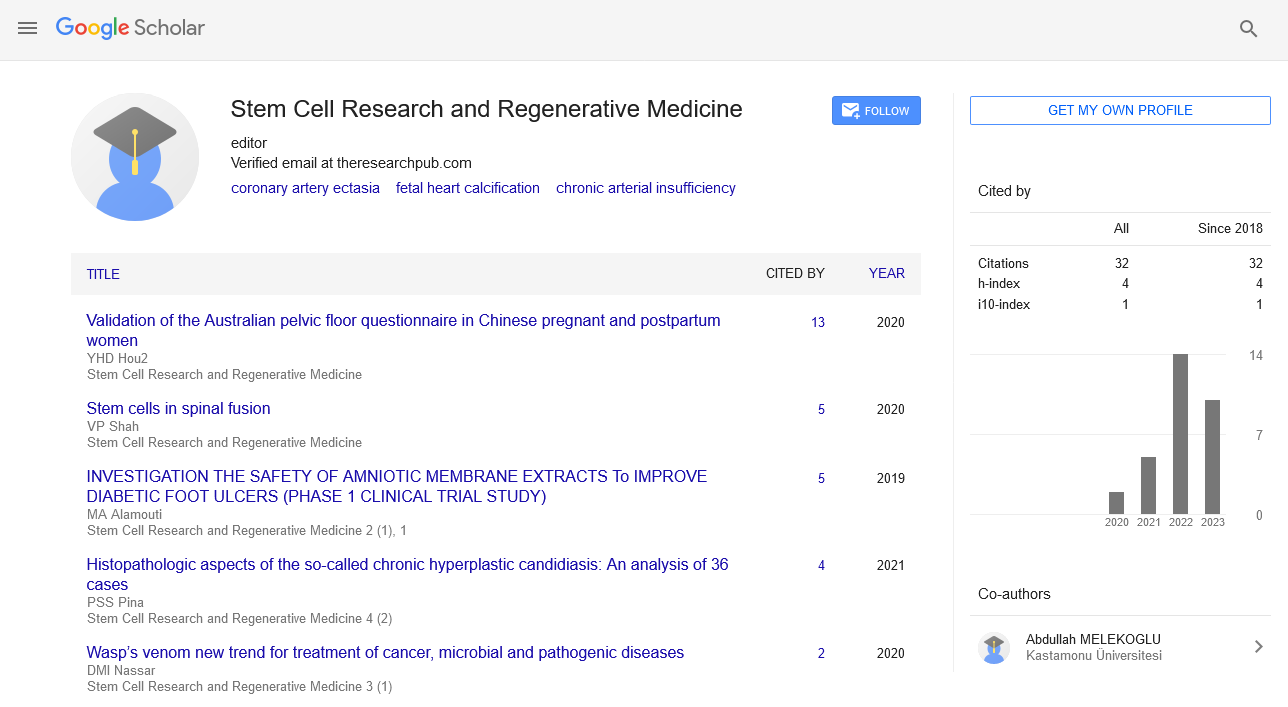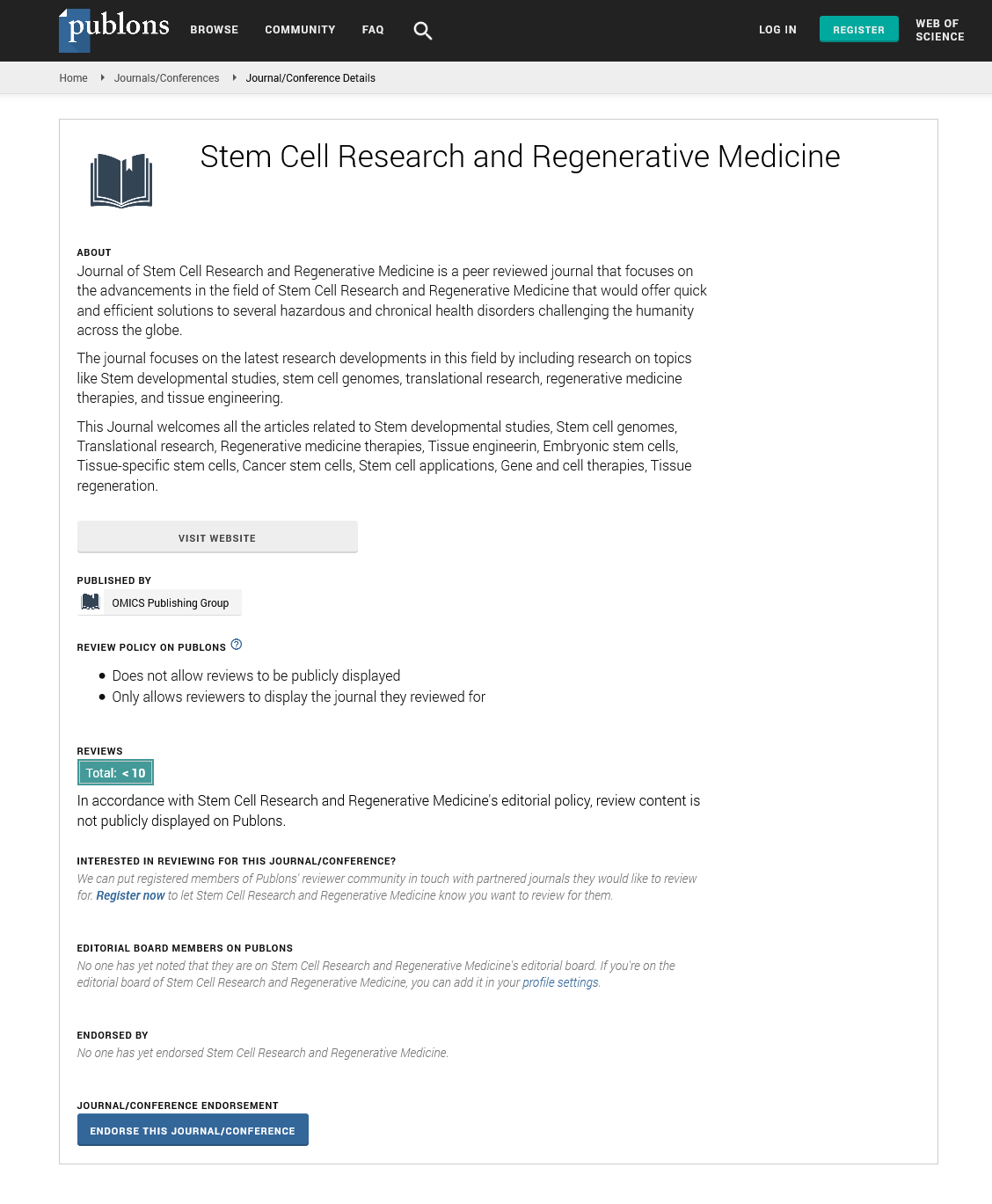Short Communication - Stem Cell Research and Regenerative Medicine (2020)
Clinically significant fatigue in adult leukemia patients: prevalence, predictors, and impact on quality of life
Isamme N AlFayyad1 Mohamad A Al-Tannir1 Muawiyah A Yaqub2 Humariya Heena1 Amani K Abu-Shaheen1
1 Research Center, King Fahad Medical City, Saudi Arabia
2Comprehensive Cancer Center, King Fahad Medical City, Saudi Arabia
Abstract
Background: Cancer-Related Fatigue (CRF) is a common distressing symptom in leukemia
patients. CRF becomes Clinically Significant Fatigue (CSF) when adversely affects health-related
quality of life (HRQoL) and warrants further workup, referrals, and treatment. We aimed to assess
the prevalence and predictors of CSF and assess its impact on HRQoL in adult leukemia patients.
Methods: Analysis was performed on 168 leukemia patients. The primary study outcomes
were CSF (score ≥4) as measured by the fatigue numerical rating scale and HRQoL using a
validated Functional Assessment of Cancer Therapy- Leukemia (FACT-Leu) scale. Univariate and
multivariate regression analyses were conducted to identify independent predictors of CSF and
HRQoL.
Results: The prevalence of CSF was 89 (53%) with a mean score of 6.66±2.02. The ROC curves
for the FACT-Leu scale indicated a score of ≥126 out of 176 as the optimal cutoff score for good
HRQoL. About 106 (63.1%) of leukemia patients had poor HRQoL (102.61±23.50). Overall, FACTLeu
mean score indicated that study participants had poor HRQoL (114.70±29.67). There was
a statistically significant difference in HRQoL between the patients with CSF 104.89±28.82
and Non-CSF 125.76±26.71, p<0.001. Poor appetite (odd ratio: 3.02 [95% CI: 1.33-6.85]) was
statistically significant predictors (p<0.010) of CSF. Dependence on caregiver (odd ratio: 3.31
[95% CI: 0.41-0.75]) and having non-CSF (odd ratio: 5.22 [95% CI: 2.44-11.19]) were found
statistically significant predictors of good HRQoL.
Conclusions: CSF is prevalent among leukemia patients, and adversely affects their HRQoL.
The findings reported by patients are based on a patient-centered approach survey. Holistic
assessment and supportive care are needed to reduce the burden of CSF and improve leukemia
patients HRQoL.
Publications
1. Knowledge of obstetric danger signs among Saudi Arabian women
2. Perception of Shared Governance Among Registered Nurses in Ambulatory Care Center at a Tertiary Care Hospital in Saudi Arabia
3. Community pharmacy sales of non-prescribed antibiotics in Riyadh, Saudi Arabia: a simulated patient study
4. Complementary and Alternative Medicine Practice Among Saudi Patients with Chronic Kidney Disease: A Cross-Sectional Study
5. Knowledge and Preparedness of Healthcare Providers Towards Bioterrorism
Biography
Isamme Al Fayyad is an Experienced Clinical Fellow with a demonstrated history of workingin th ehospital& healthcare industry. Skilled in Epidemiology, Cancer Care Nursing, Healthcare Management, Medical Ethics, and Clinical Research. Strong research professional with a Master of bioethics focused in Bioethics from King Saud bin Abdulaziz University for health sciences


